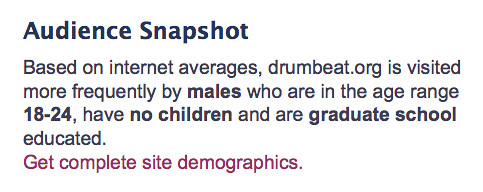One of the best things about the web is that it enables many voices to be heard. Blogs, comment threads, forums, and social networks empower people to take part in new kinds of discussion, dialogue, and debate….
With all that activity happening across the web, how do we enable more coherent, elevated discussion?
The latest Knight-Mozilla News Technology Partnership (aka MoJo) “Innovation Challenge” is intriguing. The deadline is this Sunday, May 22, and they encourage different kinds of entries: a concept brief or blog post explaining your idea (500 words or less), an embedded video or link to a slidecast (“extra points for explaining your idea this way!”), an early software demo, proof of concept, prototype, wireframes, mock-ups … “anything, really—be bold!” For that matter, “the challenge brief, resources, and stimuli are all suggestions. Be bold! Color outside the lines.” Cool!
My summary on Storify has a lot more info, including links to Wendy Norris’ notes from an in-person brainstorming session in the Bay Area and online discussions on Mozilla’s site, Hacker News, and Slashdot. The challenge brief has some pointers to emerging technologies, and highlights a few questions. Where do you see the next radical improvement in user commentary? How do we go beyond end-of-story comment threads? How do we make commenting more social?
It also describes the criteria the reviewers will use:
- If implemented, would you expect this proposal to be widely adopted by the news industry?
- Is the proposal feasible within the Knight-Mozilla timeline and resources. Program runs through 2013 and will engage 15 full-time fellows.
- Is this a unique solution to the challenge statement? Is there another open source project that would be replicated if we support this solution?
- Is it a “game changer?” Not every entry we support will be, but we should all be looking for ones that may be.
Did somebody say game-changer?  Hmmm … any ideas?

Leave a Reply